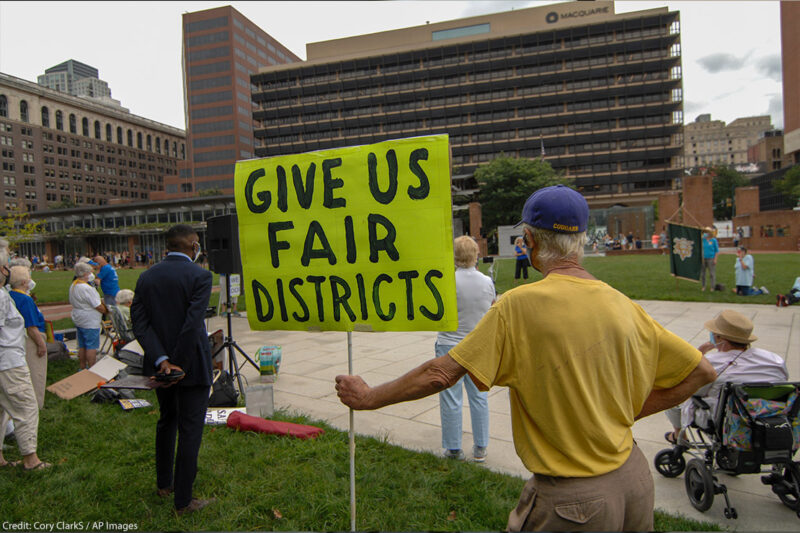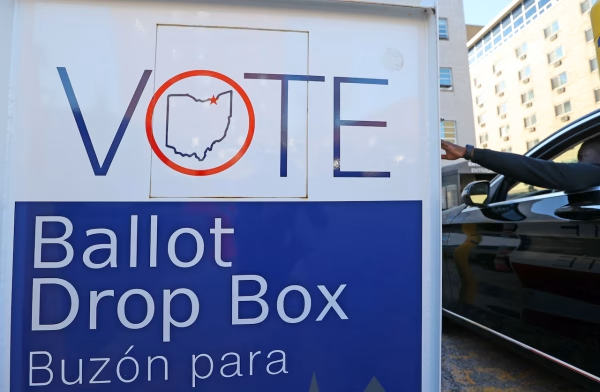The People of South Carolina Deserve Fair Maps — And a Fair Process to Get There


As redistricting ramps up nationwide following the U.S. census, the state of South Carolina has not been forthcoming about its schedule for drawing new electoral lines. In fact, even though this process only happens once a decade and determines the political power of millions, the legislature just adjourned for the fall, delaying the process by months as the 2022 election cycle fast approaches. And we don’t know when they are coming back. That’s why the ACLU and NAACP Legal Defense Fund filed a federal lawsuit demanding that the state establish a concrete, transparent redistricting schedule. South Carolinians deserve to know when their electoral maps will be drawn — and that they will be drawn fairly.
Redistricting is not easy. To achieve equal population among districts while respecting existing communities and complying with relevant laws, the Supreme Court has emphasized that redistricting requires a meticulous, “intensely local” analysis. This analysis requires local input. Yet the legislature has held minimal hearings, many only in person despite the delta variant of COVID-19, and many at times that do not work for working people.
The analysis also takes time. Yet, on Sept. 22, the state House announced it would adjourn for the fall without proposing new maps. On Sept. 24, the state Senate followed suit, noting there was no point in coming to work if proposed bills, including redistricting bills, were just going to “languish” until the House returned. Neither the legislature nor the governor has committed to convening a special session to fulfill their once-in-a-decade, time-consuming, and time-sensitive obligation. Although the legislature has claimed that delays are attributable to COVID-19 pushing the release of federal census data to the states, that’s just more reason not to adjourn.
The legislature’s abrupt decision to delay the redistricting process presents an immediate problem. Right now, the state House, state Senate, and U.S. congressional districts in South Carolina are severely out of proportion. That’s because they were last drawn with population data from 2010, after the last census. But South Carolina’s population has shifted significantly since then, such that some districts now have far too many residents and others too few. For example, South Carolina’s Sixth Congressional District is now almost 12 percent underpopulated, while the First Congressional District is almost 12 percent overpopulated. This means that, at this very moment, the people of the First District are having their voices diluted.
Candidates for political office at all levels are also harmed. They and their supporters do not know where their voters will be and therefore cannot begin mobilizing them. This is particularly true for independent candidates and their supporters, who need to take the additional step of collecting thousands of signatures ahead of the March 30 deadline just to get on the ballot. Until the legislature reconvenes and passes new, legally compliant maps — and the governor signs them into law — the current, unfair maps will stay intact.
Map-making also takes time because, especially in South Carolina, maps are virtually always challenged in court to ensure compliance with the Constitution and the Voting Rights Act. South Carolina’s maps have been litigated every decade since the Voting Rights Act was passed — in the 1970s, 1980s, 1990s, 2000s, and 2010s. Many of those times, a court had to throw out the state’s proposed maps because they violated the law. Most of these cycles, it took about four to six months for the court to hear and resolve the case. One cycle, it took years. In other words, even if the legislature came back today, they’d be cutting pretty close for comfort.
In fact, if legally acceptable maps are not passed in time, a court may have to order the illegal ones to stay in place simply to avoid voter confusion prior to the filing deadlines, primaries, and general election. That perverse result would be directly attributable to the legislature’s unacceptable delay. That’s why we need the court to step in now.
South Carolina’s legislature must make the redistricting process more transparent. It must also provide adequate time for local input on, and inevitable litigation concerning, their proposed new district lines. The public must be fully engaged to ensure that all communities are fairly represented by the advocates of their choice. Too much is at stake. Redistricting affects representation, and representation affects everything else, from our schools to our health care to our criminal justice system. South Carolinians demand maps that are fair and representative, and for that they need a transparent, trustworthy process to get them there.


